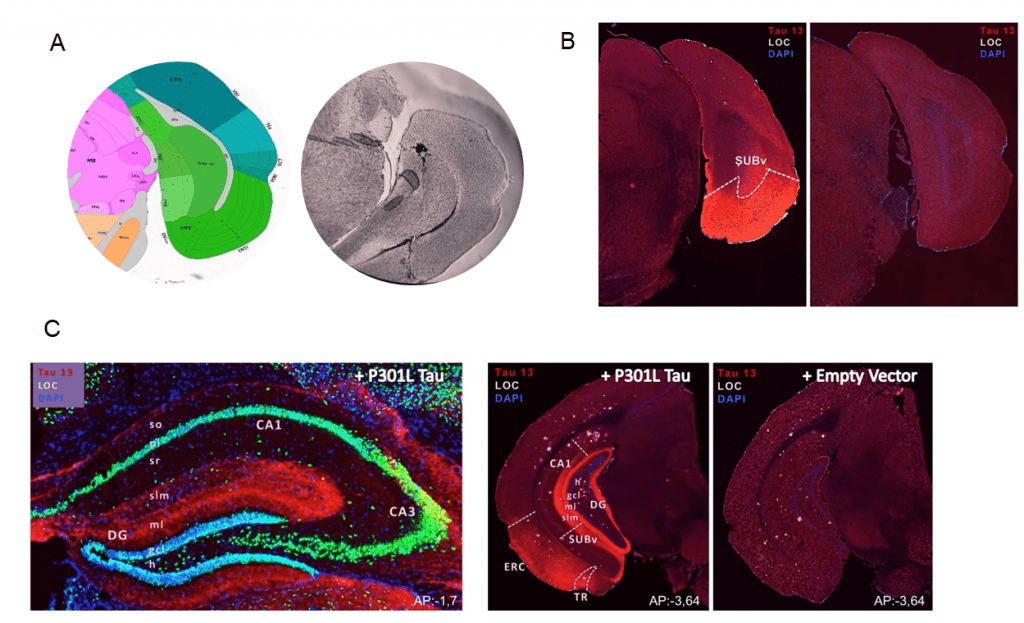Viral injections are becoming more and more indispensable in the field of neurodegenerative and rare disease research. With this method, target proteins can be expressed or suppressed in distinct brain regions by stereotactic injection into the hippocampus, cortex, striatum, ventricle, or almost any other brain region, or more systemically by intravenous injection of virus particles expressing cDNA or shRNA of the target protein.
The fully AAALAC-accredited animal facility of QPS Neuropharmacology maintains a biosafety level 2 (BSL2) laboratory for mouse and rat experiments, including but not limited to e.g., lenti-, adeno- and adeno-associated (AAV) virus particle injections.
The method can be used to induce or suppress proteins that are specific to distinct diseases, such as Alzheimer’s, Parkinson’s, tauopathies, amyotrophic lateral sclerosis, several lysosomal storage diseases, autism spectrum disorders and many more in mice and rats. This method is therefore also of great relevance for gene therapy approaches.
Commonly used virus-induced rodent models at QPS Neuropharmacology are:
- AAV2 hA53T α-synuclein-induced Parkinson’s disease
- AAV9 TDP-43-induced amyotrophic lateral sclerosis
- AAV9 Tau P301L-induced tau seeding (see below)
Tau Seeding
To analyze the effect of specific viruses for the induction or treatment of Alzheimer’s or other cognitive diseases, injections in the mouse entorhinal cortex (ERC) can be performed.
In the here presented seeding study, AAV9 Tau P301L was injected in the ERC of APPSL mice and spreading of tau in the hippocampus was observed 1 month after injection (Figure 1).

Figure 1: Recombinant adeno-associated virus particles of serotype 9 (AAV9) with the human tau P301L gene or empty vector was intracerebrally injected into the ERC of 3 months old male APPSL mice. A: Verification of injection site by ink injection into the ERC. B: Tau expression in the ERC after AAV9 Tau P301L virus injection. C: Spreading of tau into the hippocampus after AAV9 Tau P301L injection into the ERC of APPSL mice. All analyses were performed 1 month after virus injection.
Induction of proteins by virus injections is a versatile method that can be applied to model most neurodegenerative and lysosomal storage diseases, while suppression of proteins is useful to evaluate the function of proteins in vivo or the efficacy of gene therapy approaches. Contact us today to discuss the applicability of this method for your research field.
QPS Neuropharmacology offers a custom-tailored study design for virally-induced rodent models, and we are flexible to accommodate your special interest. We are also happy to advise you and propose study designs. Virally-induced models often show relevant disease phenotypes shortly after treatment. This grants a remarkable fast processing time of your study. Furthermore, sham/vehicle-treated mice can serve as control needed for proper study design.
We are happy to evaluate the efficacy of your compound in a virally-induced rodent model! The most common readouts depend on the model and include:
- Quantification of protein of interest
- Neurodegeneration
- Motor deficits
- Cognitive Deficits
- Neuroinflammation
- Oxidative stress
You might also be interested in these related topics:
